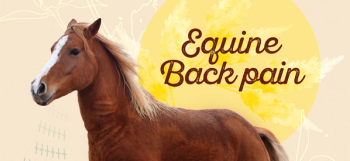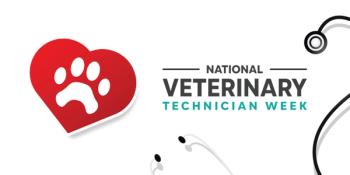
KC Corridor elects new leadership; Kansas okays bonds for NBAF
Kansas City - The KC Animal Health Corridor has a simple vision, and the results will help shape a market for the future.
Kansas City — The KC Animal Health Corridor has a simple vision, and the results will help shape a market for the future.
That's the message from KC Animal Health Corridor's new chair Craig Wallace, who also serves as the North American Zone director for Ceva Animal Health. Wallace was named chair of the organization following the departure of George Heidgerken, head of the corporate division of animal health for Boehringer Ingelheim Vetmedica, Inc. who relocated to Germany for a new role with the company. In addition, the board recently appointed its vice chair Kostas Kontopanos, U.S. president of Hill's Pet Nutrition.
In an interview with DVM Newsmagazine, Wallace says, "The corridor has been an effort to bring industry, government agencies together to collectively accomplish innovation and research and improve on the assets that have already collected here in the Kansas City area."
While more than 21 companies have relocated to the corridor in the last seven years, Wallace says, the corridor is home to some 220 organizations—the largest concentration of animal-health companies in the world.
The mission of the group isn't just to attract companies to the area, Wallace says, but also to help develop smaller start-up companies that could offer expertise or contract work to the entire animal-health market.
Wallace says that his year as chair will be focused on building out the five strategic priorities that encompass everything from community outreach to establishment of the Center for Animal Health Innovation.
"To me, this is tremendously exciting to have an innovation center that is the only one of its kind in the world and singularly focused on animal health. We have access to real innovation and new technologies that could fuel new opportunities in animal health and seed new companies. It could really act as the engine for growth within animal health," Wallace says.
Other priorities, Wallace says, are focused on developing the industry's animal-health workforce through outreach to schools. "The whole idea around that is to try to leverage training resources and try to develop a workforce that is skilled enough in a number of core competencies to support the companies springing up in the corridor. Wallace likens the efforts to a grassroots campaign to help encourage and educate students about the opportunities within animal health.
The corridor will also pursue federal and state legislation to promote the corridor's assets and resources.
The work is paying off too, Wallace says.
In fact, the KC Animal Health Corridor boasts of securing 1,300 new jobs and $1 billion in capital investment for the Kansas City region since its inception.
One of the corridor's shining achievements remains the Department of Homeland Security's (DHS) selection of Manhattan, Kan. for the $650 million federal National Bio and Agro-Defense Facility (NBAF).
Operations for the laboratory will relocate from Plum Island in New York to conduct research on foreign animal, emerging and zoonotic diseases that threaten animal agriculture and public health in the United States. The new laboratory will also offer expanded vaccine and countermeasure development capabilities for livestock.
Kansas officials recently authorized $45.4 million in bonds for the next phase of construction. The federal government will match another $40 million, the Associated Press reports, following the release of a "site-specific risk assessment report."
Construction of the NBAF's central utility plant is slated to begin in February and construction on the laboratory will begin in August.
Operations will move in 2017, DHS says, but the facility will not be fully operational until 2020.
Newsletter
From exam room tips to practice management insights, get trusted veterinary news delivered straight to your inbox—subscribe to dvm360.






